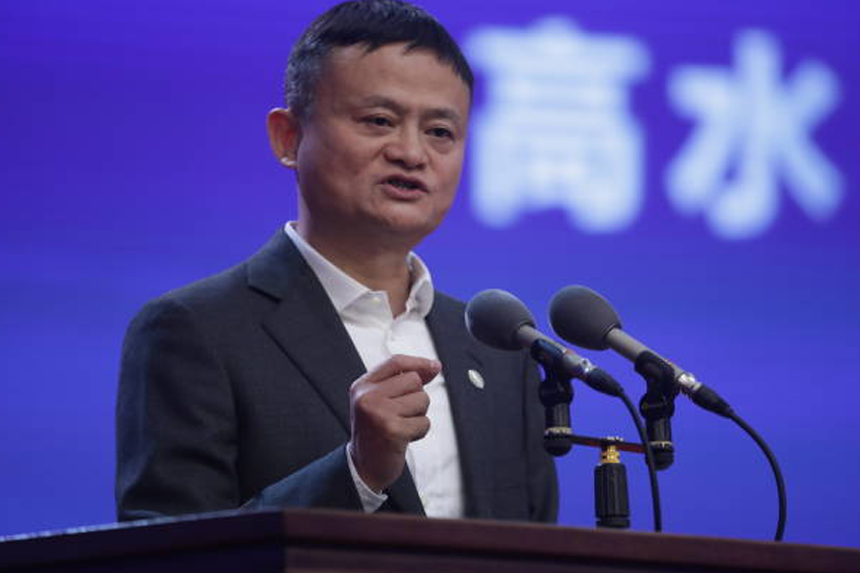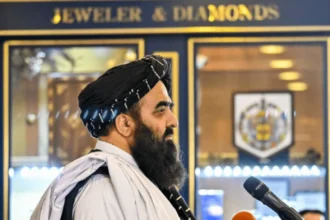Widespread conjecture and hope have been sparked by a public conference between Chinese President Xi Jinping and some of the most powerful business leaders in the nation. Jack Ma was among the guests; he had not publically attended such an occasion in years.
- What message about the business climate of China did the conference transmit?
- Has Jack Ma totally recovered his former influence?
- Is China's attitude to the tech sector changing?
- Who else showed up for the meeting and why does it matter?
- How did timing of the meeting reflect artificial intelligence and innovation?
- Is China's Crackdown on Private Business Coming to an End?
- What Future Does Jack Ma's Return Suggest?
Once a well-known person in China’s tech scene, Mr. Jack Ma had withdrew from public life after disparaging remarks on the nation’s 2020 economy. His attendance at Monday’s conference has spurred debates on what this implies for China’s economy and technology industry as well as for him personally.
The stock market reacted quickly; Chinese tech shares shot up. Following solid financial reports, Jack Ma’s company, Alibaba, in particular saw its stock climb over 8% in New York trading on Thursday. Since the year began, the company’s shares have risen 60%.
What message about the business climate of China did the conference transmit?
Analyzes broke out the ramifications of Jack Ma’s appearance right away. Considered as indicators of his restoration in China’s economic elite were his front-row seat, a handshake with Xi Jinping, and attendance itself.
“Jack Ma’s attendance, his seating in the front row, even though he did not speak, and his handshake with Xi are clear signs he has been rehabilitated,” one China observer said.
On social media, many greeted Mr. Jack Ma’s comeback with excitement. “Congratulations, Ma, for the safe landing,” said a Weibo user. Still another said, “The comeback of Ma is a shot in the arm to the current Chinese economy.”
Jack Ma was considered as an icon of China’s internet revolution before his 2020 vanished. Having little prior knowledge of computers, an English teacher co-founded Alibaba in his room and turned it into among the most valuable businesses in China. But his criticism of the nation’s banking industry resulted in regulatory investigation that included Ant Group’s $34.5 billion stock market listing being canceled. The action was generally understood as Beijing’s attempt to limit his ever increasing power.
Has Jack Ma totally recovered his former influence?
Jack Ma was not among the speakers, despite his attendance at the occasion, some onlookers remarked. This lack implies he might not yet have returned to his prior level. State media also gave scant coverage of his appearance, suggesting that even if he has been returned into the fold, his influence is still somewhat restricted.
Characterizing China’s economic challenges as “temporary” and “localized,” Xi Jinping used the symposium to inspire private businesses to innovate, grow, and remain confident.
“It is the right time for private enterprises and private entrepreneurs to fully display their talents,” Xi said, in what many regarded as a sign of newly increased government backing for the private sector.
Is China's attitude to the tech sector changing?
Jack Ma’s decline from grace coincided with a larger government crackdown on China’s tech sector, which saw tougher enforcement of data security, competition regulations, and state control over digital assets. Under the guise of “common prosperity,” the regulatory tightening spread beyond technology to other private sectors including education and real estate.
Although these policies were meant to equalize economic power, they also devalued billions of dollars worth of top Chinese enterprises, frightening world investors. Jack Ma’s comeback has spurred conjecture that Beijing may be changing its posture to boost economic confidence as China presently suffers decreasing economic growth, significant youth unemployment, and a collapsing housing market.
Director of technology research firm Counterpoint Richard Windsor said Jack Ma’s appearance could imply that “China’s leadership has had enough of stagnation and could be prepared to let the private sector have a much freer hand.”
Who else showed up for the meeting and why does it matter?
The symposium’s attendee list highlighted China’s emphasis on technical innovation. Among the attendees were DeepSeek founder Liang Wenfeng, Huawei officials, electric vehicle behemoth BYD, and other influential people from the tech and industrial sectors.
Citi’s market analysts said, “The ranking highlighted the relevance of internet, tech, AI, and EV industries given their representation of innovation and success. It most certainly shows the value of technology and the part private businesses play in the expansion of China’s economy.”
After the event, Xiaomi CEO Lei Jun expressed his opinions saying he felt “care and support” from the government towards companies.
How did timing of the meeting reflect artificial intelligence and innovation?
DeepSeek’s disruptive R1 artificial intelligence (AI) model’s unveiling marked the conference according to some analysts as China’s “Sputnik moment.” The AI chatbot has become rather popular since its introduction, even causing a sell-off in big American tech stocks because of worries about China’s AI capacity overtaking those of American companies.
DeepSeek’s success has spurred a national pride wave and fresh investor interest in Chinese stocks—especially in tech. Goldman Sachs has even changed its assessment of Chinese markets, projecting that fast adoption of artificial intelligence may bring up to $200 billion in investments.
China’s necessity to get beyond Western technological limitations has essentially driven this invention. The government has underlined “high-quality development” and “new productive forces” more and more as trade restrictions tighten, so turning attention from conventional drivers like real estate to advanced sectors including semiconductors, clean energy, and artificial intelligence.
Is China's Crackdown on Private Business Coming to an End?
Some analysts feel the conference marked a controlled interaction with the private sector rather than a hint of a stop to monitoring. One associate professor said, “rather than marking the end of tech sector scrutiny, Jack Ma’s reappearance suggests that Beijing is pivoting from crackdowns to controlled engagement.”
“While the private sector remains a critical pillar of China’s economic ambitions,” she said, “it must align with national priorities, including self-reliance in key technologies and strategic industries.”
Xi’s message was unambiguous: while private businesses have a part to contribute to China’s economic destiny, their activities should complement the long-term goal of the government. Jack Ma’s comeback serves as a potent emblem of China’s changing relationship with its private sector for now, whether this marks a permanent transformation or a fleeting one.
What Future Does Jack Ma's Return Suggest?
Jack Ma’s comeback raises issues even if it would point to a mending relationship between Beijing and the private sector. Will he be once again influential, or is this merely a symbolic act to rebuild investor confidence? Will China relax rules on its technological behemoths, or will businesses still be expected to fit government priorities?
Jack Ma is now a cautionary story and a case study as well. His comeback emphasizes how well the Chinese government understands how important private business is to stimulate creativity and economic development. Still, it also emphasizes Beijing’s will to keep close supervision over the industry. Globally markets, investors, businesses, and individuals will be intently observing to determine whether this change is strategic recalibration or permanent.







